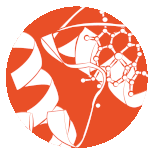
Be careful what you read—Ebola
![A colorized transmission electron micrograph image of an Ebola virus virion. Image by CDC/Cynthia Goldsmith [Public domain] ebola virus](https://i0.wp.com/www.tstmarchive.talksciencetome.com/wp-content/uploads/2014/10/512px-Ebola-virus-virion-300x137.jpg?resize=300%2C137&ssl=1) I don’t often share quotes as a tweet or Facebook status, preferring to give real-time life updates, share interesting articles I’ve read about social media marketing or science, and of course post pictures of cats—but once in a while, a quote makes sense. Time and place, people—time and place.
I don’t often share quotes as a tweet or Facebook status, preferring to give real-time life updates, share interesting articles I’ve read about social media marketing or science, and of course post pictures of cats—but once in a while, a quote makes sense. Time and place, people—time and place.
The quote “Think before you speak. Read before you think,” attributed to Fran Lebowitz, brought the usual likes, but then fellow science writer Lesley added, “These days you would need to add—but be careful what you read!”
Very true, especially currently. And I’m specifically referring to the current Ebola outbreak in western Africa. With the transport of cases for treatment into North America and Europe, and in addition to cases identified outside the affected area, there has been an explosion of chatter now that the disease is no longer “safely confined.” With the increase in discussion, there’s inevitably misinformation causing unnecessary panic; Time compares spreading misinformation to spreading infection. And although The New Yorker places a humorous spin on this kind of infection, a CTV News post from April shows just how deadly myths can be when people’s health is at risk. The Guardian shows what it means to patients and health workers when false information and disease go hand-in-hand. Be careful what you read.
But where is a safe place to read and get information on this deadly virus?
While we don’t claim to be virology experts here at Talk Science to Me, we are careful science communicators who evaluate our sources of information. We’ve drawn up a list of suggested sources for you to bookmark. It’s not happy reading, but it is reliable and informative.
- The Centers for Disease Control and Prevention (CDC) in the US regularly updates its page with useful fact sheets, common questions and disease monitoring reports. The CDC has also tweeted an informative infographic.
- Medline Plus hosts a curated list of current Ebola information and research in an easily accessible format in addition to a specific Ebola page.
- The World Health Organization has an Ebola FAQ available as a PDF download.
- Advice from the National Health Service in the UK includes information for travellers and reassurance on current safeguards.
- Journalists looking for credible experts should consult media organizations such as the Science Media Centre of Canada or similar organizations worldwide. These are also handy bookmarks for informed commentary on scientific news in general.
And finally, why not donate to support medical staff?

No Comments